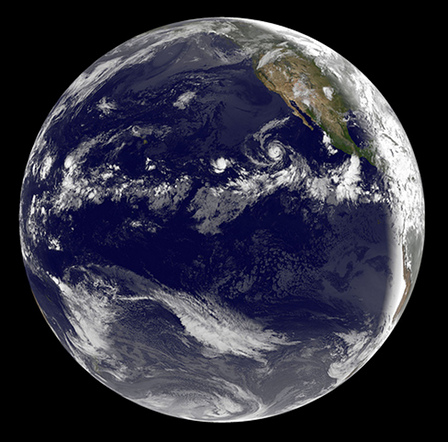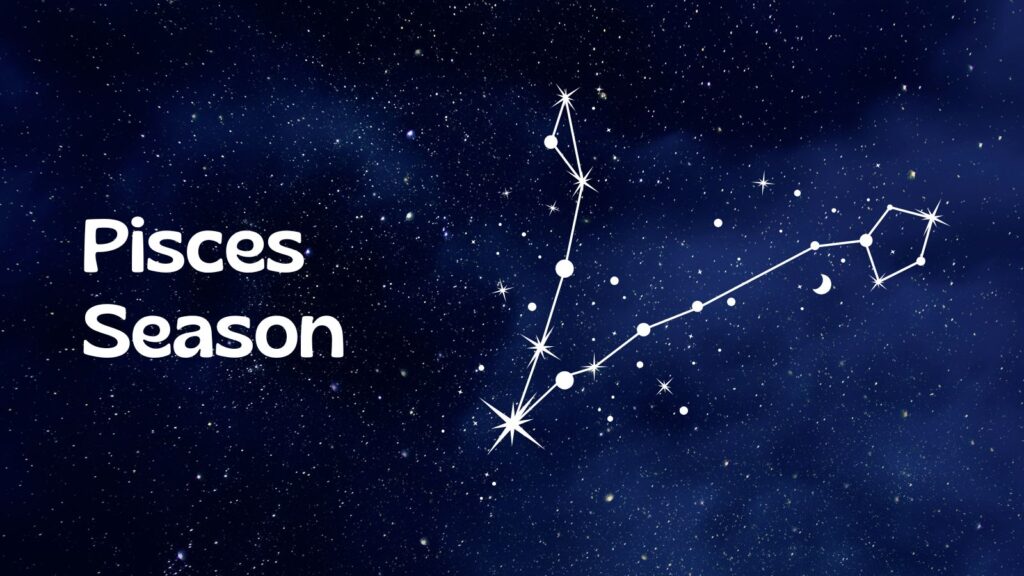Now that the experience of spaceflight is merely $200,000 and a waiting list away, what kind of transformation will be sparked by the successive crops of space-travellers returning to Earth?
On October 17th, 2011, a dedication ceremony was held for the ‘Virgin Galactic Gateway to Space', the first terminal of Spaceport America. Situated in the Jornada del Muerto desert basin in New Mexico is a piece of science fiction made real. The simple terminology of ‘spaceport' being applied to a real place that you could go to, a place where people will be working at and eventually travelling from as a matter of routine should be enough to send the nerds of the world into delirious joy. However, I doubt we are prepared for the real implications of, on a weekly basis, sending wealthy people into orbit, 6 at a time, for 6 minutes of spaceflight.
The cultural conversation concerning space exploration has experienced a tumultuous adolescence. Born in the tidal waves of fear from German missile development, and culminating in the ideological theater of the 1960's Space Race, space exploration as a concept has been muddled by militaristic and nationalistic overtones. Only for the last 10 years since the end of the Cold War has space become an international cooperative effort with mutually beneficial aims.
Throughout the modern careers of the Space Shuttle and Soyuz rockets, and the development of the International Space Station, public opinion of space projects has been at its best lukewarm, and at its worst hostile. Why bother fiddling around in space when we have real world concerns like terrorism and economic collapse? How can we justify spending billions of dollars so a bunch of eggheads can go pee in tubes and do experiments or whatever? There is a national disenchantment with space, an effect first exemplified by the plummeting viewership of each successive moon landing.
Despite the lack of general enthusiasm, the human race has recently taken its first steps into a new era of space exploration. In 1996, the X Prize Foundation offered $10 million to the first non-government organization to launch a reusable manned spacecraft into space twice within two weeks. Twenty-six teams of engineers competed for the prize, and in October 2004, SpaceShipOne, a joint venture of Microsoft co-founder Paul Allen and Scaled Composites, completed its second flight.
Scaled Composites went on to partner with Richard Branson's Virgin Group to create a fleet of spacecraft for Virgin Galactic, the first commercial spaceflight company. Prior to Virgin Galactic's founding, a mere total of 7 civilians have been allowed into space, with a price tag of $20-35 million for a 1-2 week stay on the ISS, and usually with the condition that they participate in scientific research. Virgin Galactic's planned flights represent a complete paradigm shift in civilian spaceflight.
For a mere $200,000, passengers will receive a full vacation package complete with 3 days of training at a tropical resort, followed by a 3 ½ hour flight aboard one of two Virgin Galactic spacecraft, VSS Voyager and VSS Enterprise. Each flight will launch from the air after being carried to 52,000 ft. by a WhiteKnightTwo "mothership". The actual sub-orbital flight at 70,000 ft. will last for 6 minutes of weightlessness. This 6 minutes of conscious experience is the tiny, holy moment around which all the artifice of technology and finance revolves, and the spacecraft would be practically useless without the dozen or so windows (both 13 inches and 17 inches in diameter) that surround the passengers. For those who make the journey, the shifts in awareness that will occur through these small windows could have an effect that extends well beyond the indulgent hedonism suggested by the term "space tourism".
Something happens to you when you see the Earth from orbit. Ever since Yuri Gagarin became the first homo-sapien to orbit the Earth, a total of 517 humans from 38 countries have gone into space. That's 3 people completing only a sub-orbital flight, 514 people who have orbited the Earth, 24 who have travelled beyond low Earth orbit and 12 men who have walked on the Moon. Out of this tiny fraction of the population, incredible testimonials have been recorded. The experience of zero-gravity, combined with the sight of Earth from space, has an effect on human beings that is only just beginning to be understood.
While much of the scientific community has been dutifully studying a staggering list of physiological concerns that accompany spaceflight, comparatively little attention has been dedicated to the psychological experience, much less the spiritual experience. However, there is a thrilling consistency in the reports from those who have spoken to the profound existential shifts they have felt in space. In 1987, Frank White was the first to study this phenomenon in his book The Overview Effect. Through dozens of interviews, he paints a picture of the mind-shift that orbiting the Earth provides.
The most evocative and vital account of the overview effect comes from Russell "Rusty" Schweickart, a NASA astronaut who was a crewman on the Apollo 9 mission. Rusty spent 10 days orbiting the Earth, in the first test flight of the lunar and command modules that would later be sent to the moon. As he orbited the Earth, once every hour and a half, Rusty had a dramatic experience of expanded consciousness:
"As you eat breakfast you look out the window and there's the Mediterranean area, Greece and Rome and North Africa and the Sinai, that whole area. And you realize that in one glance what you're seeing is what was the whole history of humankind for years — the cradle of civilization. (…) And you finally come up across the coast of California, and you look for those friendly things, Los Angeles and Phoenix, and on across to El Paso. And there's Houston, there's home, you know, and you look out, and you identify with it. And you go out across the Atlantic Ocean and back across Africa, and you do it again and again and again, and it all becomes friendly to you.
And you identify with Houston and then you identify with Los Angeles and Phoenix and New Orleans. And the next thing you recognize in yourself is that you're identifying with North Africa. You look forward to it, you anticipate it, and there it is. And that whole process of what it is you identify with begins to shift. When you go around the Earth in an hour and half, you begin to recognize that your identity is with the whole thing. And that makes a change.
You look down there and you can't imagine how many borders and boundaries you cross, again and again and again, and you don't even see them. There you are — hundreds of people in the Middle East killing each other over some imaginary line that you're not even aware of, that you can't see. And from where you see it, the thing is a whole, the earth is a whole, and it's so beautiful. You wish you could take a person in each hand, one from each side in the various conflicts, and say, ‘Look. Look at it from this perspective. Look at that. What's important?'"
This theme of yearning to find all the people of the world who are fighting one another, to take them into orbit and share in this transcendent experience, is a common aspect of most accounts of the overview effect. Rusty goes on to describe the lasting effects of his experience.
"There's nothing you've done that deserves this experience, that earned it. It's not a special thing just for you. And you know very well at that moment, for it comes through to you so powerfully, that you are the sensing element for all of humanity, you as an individual are experiencing this for everyone. You look down and see the surface of that globe you've lived on all this time, and you know all those people down there and they are like you, they are you — and somehow you represent them. You are up there as the sensing element, that point out on the end, and that's a humbling feeling. It's a feeling that says you have a responsibility. It's not for yourself. The eye that doesn't see doesn't do justice to the body. That's why it's there. That's why you are out there.
And somehow you recognize that you're a piece of this total life. And you're out there on that forefront and you have to bring that back somehow. And that becomes a rather special responsibility and it tells you something about your relationship with this thing we call life. And that's a change. That's something new. And when you come back there's a difference in that world now. There's a difference in that relationship between you and that planet, and you and all those other forms of life on that planet, because you've had that kind of experience. It's a difference and it's so precious."
Rusty has gone on to help found the B612 Foundation, a private organization dedicated to protecting the Earth from asteroid strikes. He is also a founding member of the Association of Space Explorers, a non-profit group comprised of most of the people living today who have gone into space. They are dedicated to promoting science education, environmental awareness, and international cooperation towards the exploration of space. He has also taught at the Esalen Institute. Rusty's dedication to outreach is shared by many other space travellers. Astronaut Col. James B. Irwin walked on the moon and later founded the High Flight Foundation, a ministry that maintains his attempt to equate the gospel of Christ with the gospel of Orbit.
Another startling account of the overview effect comes from Apollo 14 astronaut Edgar Mitchell, who says in an interview:
"I realized that the molecules of my body and the molecules of the spacecraft had been manufactured in an ancient generation of stars. It wasn't just intellectual knowledge — it was a subjective visceral experience accompanied by ecstasy — a transformational experience.
(…)
The experience in space was so powerful that when I got back to Earth I started digging into various literatures to try to understand what had happened. I found nothing in science literature but eventually discovered it in the Sanskrit of ancient India. The descriptions of samadhi, Savikalpa samadhi, were exactly what I felt: it is described as seeing things in their separateness, but experiencing them viscerally as a unity, as oneness, accompanied by ecstasy."
Ed Mitchell has gone on to found the Institute of Noetic Sciences, a "nonprofit research, education, and membership organization whose mission is supporting individual and collective transformation through consciousness research, educational outreach, and engaging a global learning community in the realization of our human potential." He has published several papers on quantum holography and a dyadic model of consciousness.
So it's clear that there is an extremely powerful experience waiting for us up there, a sudden, deep realization of the fundamental unity of all life on Earth. No one who goes up comes down the same person, much like with a psychedelic experience. Through the power of a transcendent moment, there emerges an imperative for us to include the whole planet in our definition of self. Many Earth-bound souls have realized this on a conceptual level, and campaign for causes to raise awareness of global climate change as well as advocating sustainable practices to better care for the Earth. However, most of this activism relies merely on communicating alarming statistics, an approach with debatable effectiveness.
The overview effect reliably produces an unshakable conviction that the universe is rapturously interconnected, and that we are one global family that urgently needs to settle our petty conflicts, care for our fragile planet, and seek our destiny out among the stars. This could very likely be our birthright as a species, a clear signal that we are meant to go into space, that we will not be forever limited to the surface of the Earth, and that we are destined for a shift in being on par with the first fish that climbed out of the ocean. What then, is going to happen once Virgin Galactic completes its exhaustive safety testing, and regular trips begin for those currently wait-listed? It begins with the questions of ‘who' and ‘how many'?
Currently, there are almost 500 people who have already completed registration and deposits for their tickets to space. This already equates to the current total number of people who have ever gone into space. If Virgin maintains an average schedule of just 2 flights per week, that will equal 624 people per year being subject to the overview effect. Virgin currently has solid plans for at least 3 additional spaceships, and at least one additional spaceport. We also have not even begun to discuss Virgin's emerging competition, the dozens of other start-ups that are making preparations for their own commercial spaceflights, including plans for orbiting hotels. Within a few years, we will have multiple spaceports around the world, and they will eventually begin to resemble airports, with multiple terminals and busy schedules.
Considering the current price tag, a happy coincidence of Virgin Galactic flights is that they will be sending extremely wealthy and influential people into orbit. As the first dozen or so millionaires and billionaires return to Earth after experiencing the overview effect, what can we expect them to do next? Returning astronauts have been able to initiate highly successful outreach efforts through their own modest means. For them, space exploration and its related fields of astronomy and engineering are natural channels for communicating their experiences. However, when anyone with $200k to burn can make the trip, the ranks of the orbitally enlightened will swell with financiers, entrepreneurs, artists, musicians, and, hopefully, heads of state. When LSD was a national obsession, it was posited by many that if only the leaders of the world were to experience an LSD trip, world peace would soon follow. Luckily, the prospect of a trip into outer space is much easier for politicians to accept than a trip into inner space.
The only concern that is holding back the tide of commercial spaceflight is, of course, safety. Richard Branson personally offered William Shatner a seat on the maiden voyage of the VSS Enterprise, but his response upon declining was, "I do want to go up but I need guarantees I'll definitely come back." The danger of catastrophic failure looms in the wake of Challenger and Columbia. Neither of these tragedies put a stop to space exploration, nor did the Apollo 1 disaster. These failed missions and the lives they took served as somber reminders of the unavoidable risks that great pioneers face along the journey. Ironically, a space program cloaked in militarism and nationalism is able to take deadly setbacks in stride, with the human cost outweighed by the requisite ideological steadfastness.
Civilian spaceflight will not have it so easy. Were the unthinkable to happen just at the start of Virgin Galactic's flight schedule, it is difficult to estimate the impact on future developments. Nevertheless, the overview effect itself seems to carry a momentum of spiritual imperative that will absorb calamity and soldier on into the future despite any setbacks large or small.
The facts are clear: within a few years, hundreds of ambitious and well-connected people will be regaling us with their own poetic descriptions of the Earth from above. Most likely, returning space travellers will start some sort of foundation dedicated to promoting the overview effect and all that it entails. A restless Gaian agenda will seize those brave enough to make the journey, and the global conversation will never be the same. In this already interconnected world, we will take the journey together. Youtube will be awash with HD video from ordinary people chronicling their Virgin Galactic flights. Costs will drop. More people will have access to the overview effect, and thus more people will ache to teach the world of the new, inevitable paradigm of cosmic oneness.
The conversation of global consciousness change has fostered a fascinating debate concerning the role of technology in the destiny of humanity. Some rush to disenthrall us from the bounties of rapid technological development, citing the instability of nuclear power plants, or the undelivered techno-utopia that is apparently long overdue. We have become suspicious of technology as a whole, and many would choose to forsake the march of progress in favor of a back-to-basics, back-to-nature approach.
However, the destiny of our species has always been tied to the sophistication of our tools, even since before the dawn of civilization, when language, the first technology, drew us into the self-actualizing upward spiral that is history. By making outer space available to all, we are now approaching the pinnacle of our growth as a technological species, and the moment we take to the stars is the moment we enter into true global maturity. The beginning of our journey into outer space is a paradigm shift, one that signals the deliverance of humanity from the chrysalis of terrestrial life into the realm of galactic initiation.
Image by Nasa Goddard Photo and Video, courtesy of Creative Commons license.













